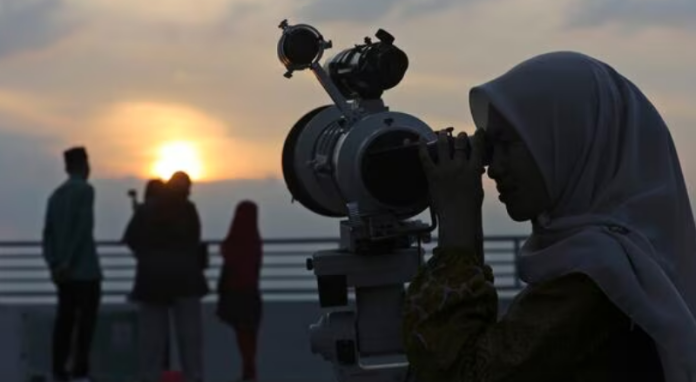Ramadan, revered as the holiest month in Islam, carries immense importance for millions of Muslims globally. Spanning 29 to 30 days, Ramadan is a time marked by fasting, prayer, introspection, and communal bonding.
It serves as a commemoration of the initial revelation of the Quran to the Prophet Muhammad, as per Islamic teachings.
The commencement of this sacred month hinges upon the sighting of the crescent moon.
Fasting timing in Saudi Arabia and India
Fasting in Saudi Arabia and India typically begins upon the sighting of the crescent moon marking the start of Ramadan. In Saudi Arabia, if the Ramadan crescent moon is sighted on Sunday evening, fasting will commence on Monday, March 11.
In a post on X, The Holy Mosques wrote, “Ramadan 1445 : The Supreme Court of Saudi Arabia officially calls for residents to investigate the crescent of the holy month of #Ramadan on Sunday evening, 10th March 2024, 29 Sha’ban 1445 AH.”
However, if the crescent moon is not sighted on Sunday after Maghrib or evening prayers, fasting will begin on Tuesday, March 12, 2024. Similarly, in India, fasting begins based on the sighting of the crescent moon, aligning with the same dates as observed in Saudi Arabia.
This period of fasting is a central aspect of Ramadan, symbolizing devotion, self-discipline, and spiritual growth for Muslims across these regions.
If the Ramadan crescent moon is sighted on Sunday evening, the Taraweeh prayers will begin that night and Muslims in Saudi Arabia will begin fasting on Monday, March 11. If the Ramadan crescent is not on Sunday after Maghrib or evening prayers, the holy month will start on Tuesday, March 12, 2024.
Throughout Ramadan, Muslims abstain from food and drink from sunrise to sunset as an act of devotion and spiritual discipline. The fasting period revolves around two main meals: Iftar and Suhoor.
Iftar is the meal eaten after sunset, marking the end of the day’s fast, while Suhoor is consumed before dawn, prior to beginning the fast for the day. Iftar dinners hold significant cultural and social importance, serving as a cherished opportunity for families and communities to come together and break their fasts in unity and fellowship.




